How to Be Outraged: A Flowchart for Sustainable Social Activism [downloadable]
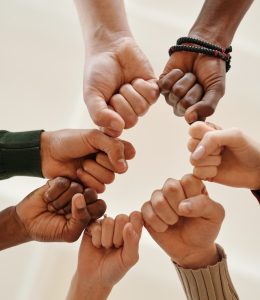 When news breaks about troubling injustices, oppressive shifts in government, or court rulings that seem unthinkable, it’s normal to feel extremely angry. Anger, like no other emotion, can move us toward action. Read more ›
When news breaks about troubling injustices, oppressive shifts in government, or court rulings that seem unthinkable, it’s normal to feel extremely angry. Anger, like no other emotion, can move us toward action. Read more ›
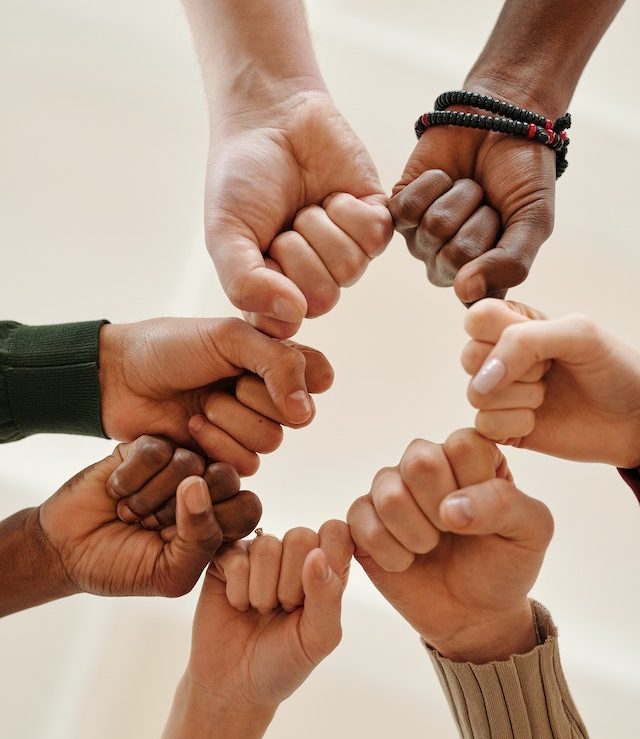
 When we teach kids early on that it’s OK to talk about race, we help them to understand, respect, and appreciate the differences between people. This builds empathy and compassion for others so that kids are better able to see when things in their world seem unjust or unfair — and can do something about it.
When we teach kids early on that it’s OK to talk about race, we help them to understand, respect, and appreciate the differences between people. This builds empathy and compassion for others so that kids are better able to see when things in their world seem unjust or unfair — and can do something about it. 
 Infants as young as six months old can recognize differences in skin color. By age two and a half, research has shown, children prefer playmates who are similar in race and gender. And as early as age three, they are forming judgments about people based on racial differences.
Infants as young as six months old can recognize differences in skin color. By age two and a half, research has shown, children prefer playmates who are similar in race and gender. And as early as age three, they are forming judgments about people based on racial differences.
 Children are curious and often have questions when they encounter people that are different from them, whether it be race, age, ability, religion, disability, gender, sexual orientation or appearance, just to name a few. But while their questions can be embarrassing at times, it’s important to answer those questions and talk about their curiosity.
Children are curious and often have questions when they encounter people that are different from them, whether it be race, age, ability, religion, disability, gender, sexual orientation or appearance, just to name a few. But while their questions can be embarrassing at times, it’s important to answer those questions and talk about their curiosity.
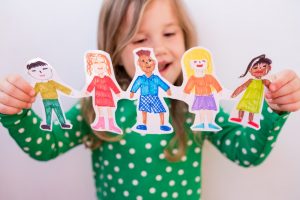 Contrary to the common belief that young children “don’t see race,” a mountain of research evidence confirms that racial awareness starts early. We know that within a few months of birth, babies prefer own-race faces, and that by roughly age 3 kids start to form judgments about others based on racial differences. And by kindergarten, kids perceive that different racial groups have different social status.
Contrary to the common belief that young children “don’t see race,” a mountain of research evidence confirms that racial awareness starts early. We know that within a few months of birth, babies prefer own-race faces, and that by roughly age 3 kids start to form judgments about others based on racial differences. And by kindergarten, kids perceive that different racial groups have different social status. 
 Here’s the beautiful thing about kids—most are born with a natural sense of justice and fairness. Unless they are taught to be hurtful and cruel, most children know that it is wrong to attack others either physically or with words.
Here’s the beautiful thing about kids—most are born with a natural sense of justice and fairness. Unless they are taught to be hurtful and cruel, most children know that it is wrong to attack others either physically or with words.
 Talking openly and positively about differences can help children better understand themselves and those around them. Embracing diversity and inclusion empowers kids to engage their world with curiosity, confidence and kindness.
Talking openly and positively about differences can help children better understand themselves and those around them. Embracing diversity and inclusion empowers kids to engage their world with curiosity, confidence and kindness. 
 February 1 marks the start of Black History Month, bringing opportunities for critical reflection and honest conversation with our students about our history and futures. The 2022 Black History Month theme is “
February 1 marks the start of Black History Month, bringing opportunities for critical reflection and honest conversation with our students about our history and futures. The 2022 Black History Month theme is “
 Real American
Real American 



